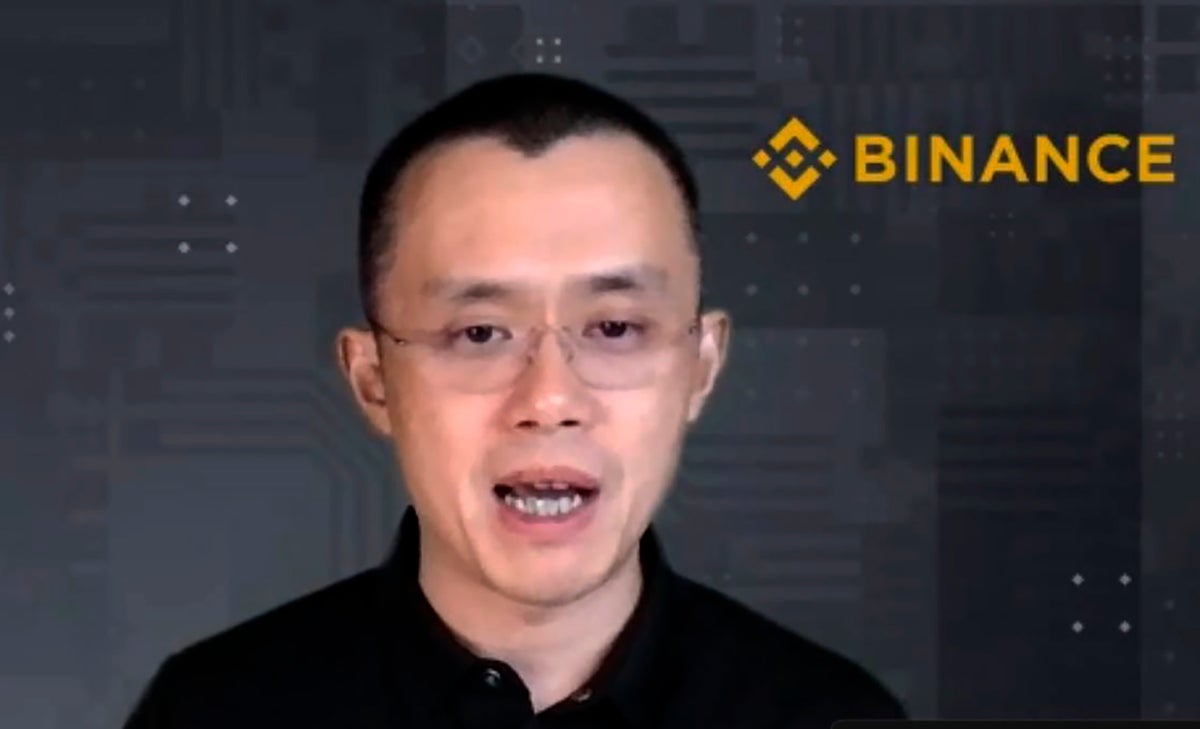
Binace, the world’s largest cryptocurrency exchange, will pay over $4bn to US officials after admitting to unlicensed money transfers, sanctions violations, and willfully failing to institute anti-money laundering protections, federal officials announced on Tuesday.
The oversights allowed trading with sanctioned nations like Iran, Cuba, and Syria, and failed to institute systems to report suspicious potential transactions with terror groups, according to the Treasury Department.
“Binance was allowing illicit actors to transact freely, supporting activities from child sexual abuse to illegal narcotics to terrorism,” Treasury Secretary Janet Yellensaid on Tuesday.
Changpeng Zhao, the founder of and CEO of Binance, is also stepping down, and will pay a $50m fine after pleading guilty to related charges. He could face up to 18 months in prison.
“I made mistakes, and I must take responsibility,” the executive wrote on X. “This is best for our community, for Binance, and for myself.”
Changpeng Zhao is stepping down as Binance CEO— (Copyright 2022 The Associated Press. All rights reserved.)
Federal officials described a wide-ranging set of problems at the crypto exchange, which at times handled two-thirds of global crypto trades.
“It willfully enabled hundreds of millions of dollars in transactions between American users and users subject to US sanctions,” US Attorney General Merrick Garland said in remarks on Tuesday. “And its platform accommodated criminals across the world who used Binance to move their stolen funds and other criminal proceeds.
“Binance prioritized its profits over the safety of the American people.”
The massive penalty, one of the largest in US financial regulation history, will also go towards resolving inquiries from the Commodity Futures Trading Commission, the Department of the Treasury’s Financial Crimes Enforcement Network (FinCen), and the Office of Foreign Assets Control.
On multiple occasions, Binance leadership intentionally took steps that allowed dangerous and illegal transactions to take place, according to the Justice Department.
Binance knew it served US customers, meaning it had to register with FinCen and implement anti-money laundering controls, but “chose not to comply,” per the DOJ.
Rather than set up these protections, the company created a separate Binance.US platform in 2019, while seeking to encourage VIP customers to obscure their accounts and continue using the main exchange, officials said.
“Binance executives, including Zhao, made a plan to contact VIP customers and help the VIP register a new account for an offshore entity and transfer holdings to that account,” the DoJ said in an announcement of the agreement on Tuesday. “Binance employees also called US VIPs to encourage them to provide information that suggested the customer was not located in the United States.”
The company, knowing it had US customers, also failed to introduce controls that would stop them from making trades with sanctioned jurisdictions like Iran, resulting in over $898m in trades between US and Iran-based users between January 2019 and May 2022.
At one point, according to the DoJ, Zhao told employees it was “better to ask for forgiveness than permission,” while in another instance, a compliance employee wrote in a message, “We need a banner ‘is washing drug money too hard these days - come to binance we got cake for you.’”
In a statement on Tuesday, Binance acknowledge making “criminal violations.”
“These resolutions acknowledge our company’s responsibility for historical, criminal compliance violations, and allow our company to turn the page on a challenging yet transformative chapter of learning and growth,” the company wrote. “With the compliance and governance enhancements enshrined in our commitments, we can begin to share our vision for Binance’s exciting future and the future of the crypto industry.”
The company also emphasised that the resolutions don’t allege Binance misappropriated user funds or engaged in market manipulation.
Richard Teng, the company’s former global head of regional markets, will take over as CEO, according to Binance.
The massive agreement with federal regulators will also require Binance to accept the appointment of a government monitor to oversee the business and bar Zhao from involvement with the company until three years after the monitor is appointed, according to court records viewed by The New York Times.
Notably, the Securities and Exchange Commission was not a part of the Binance agreement.
The SEC sued Binance and Zhao in June, alleging that they used companies beneficially owned by Zhao to inflate trading prices and make money off customers, allegedly mixing customer funds with Binance money.
“While we take the SEC’s allegations seriously, they should not be the subject of an SEC enforcement action, let alone on an emergency basis. We intend to defend our platform vigorously,” the company responded at the time in a statement.
“And, to be clear: any allegations that user assets on the Binance.US platform have ever been at risk are simply wrong, and there is zero justification for the Staff’s action in light of the ample time the Staff has had to conduct their investigation,” the company added in the statement.
The massive settlement comes just weeks after FTX founder Sam Bankman-Fried was found guilty in federal court of defrauding customers on his popular cryptocurrency exchange out of billions of dollars.
Bankman-Fried’s defence team has vowed to fight the charges.







